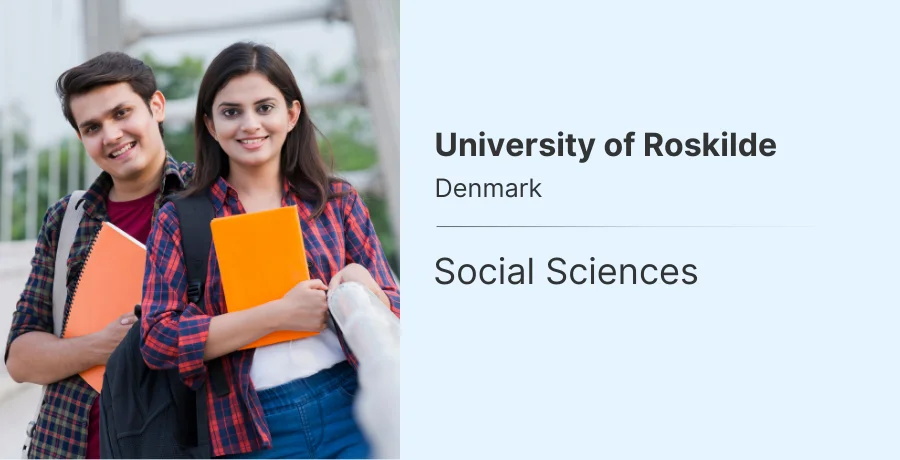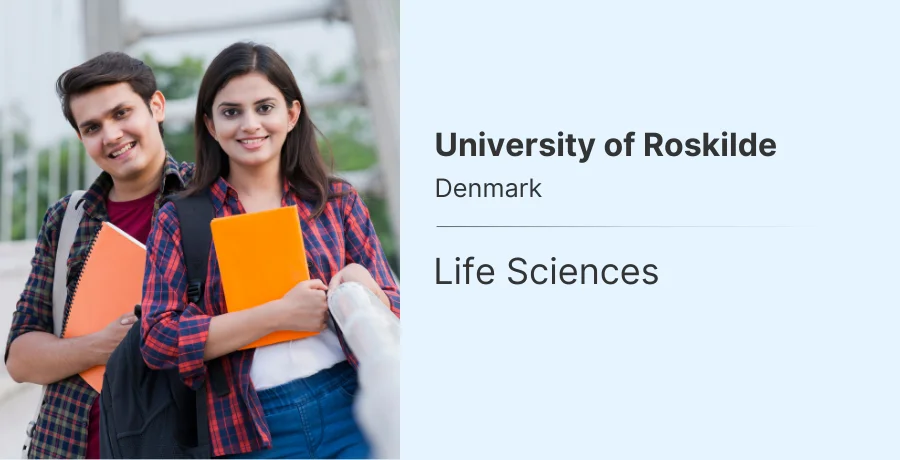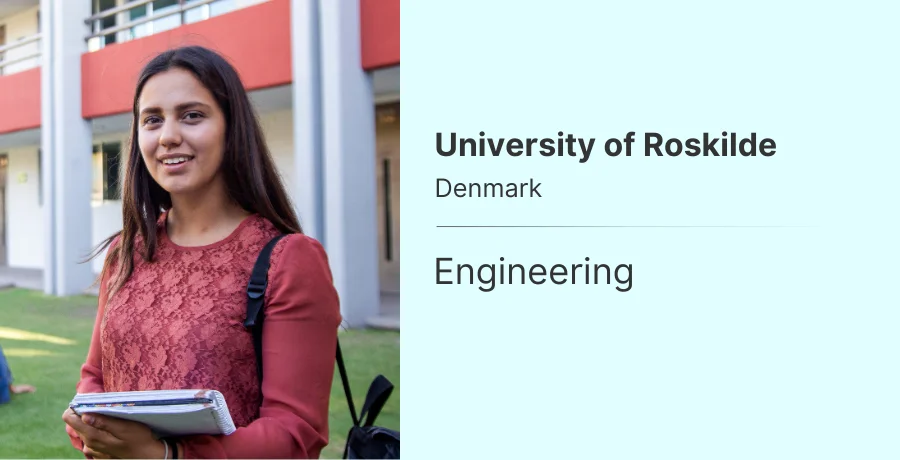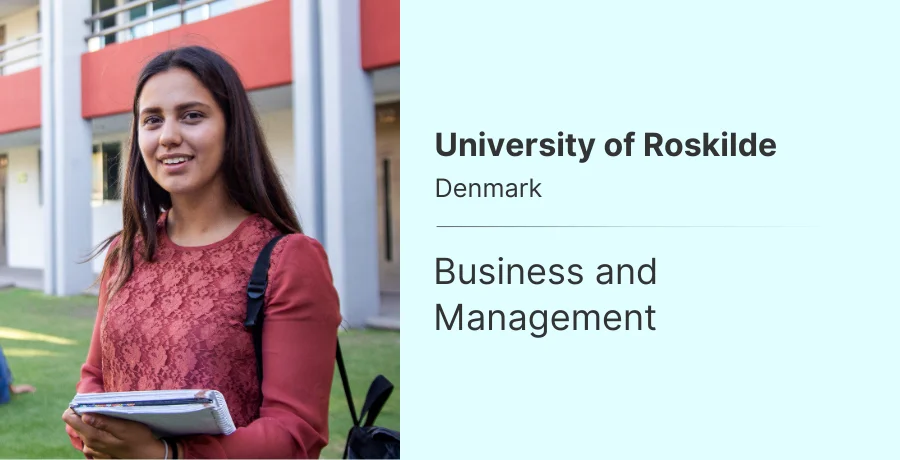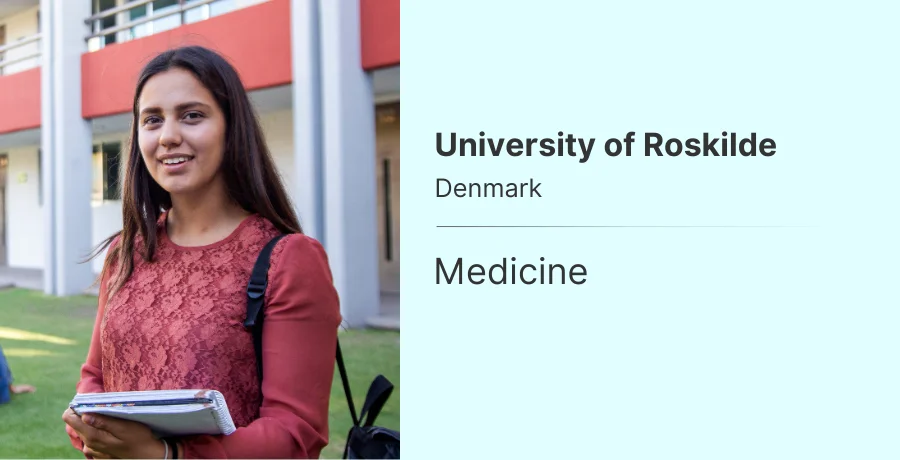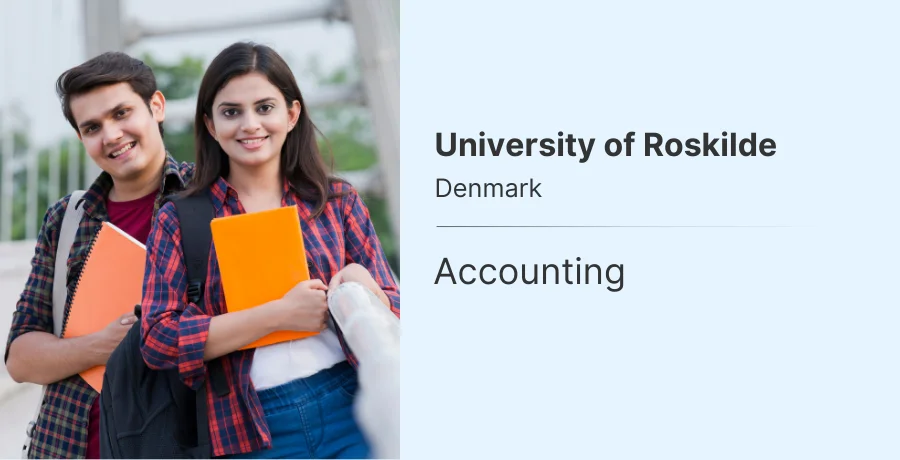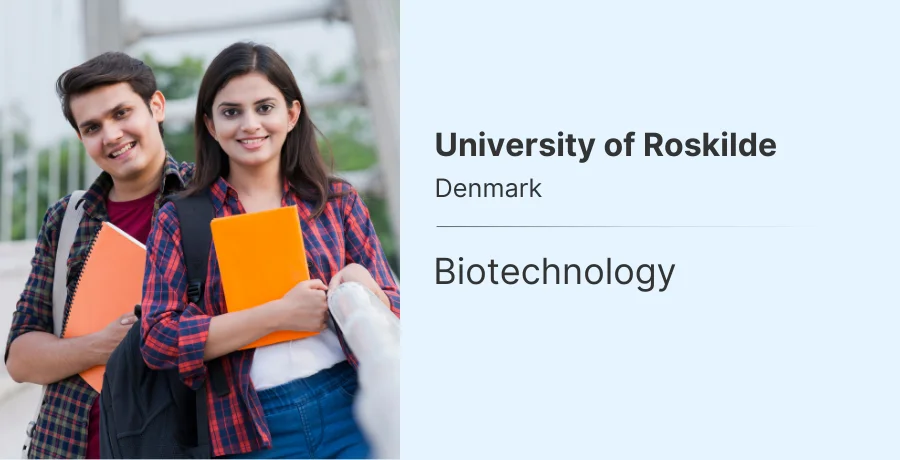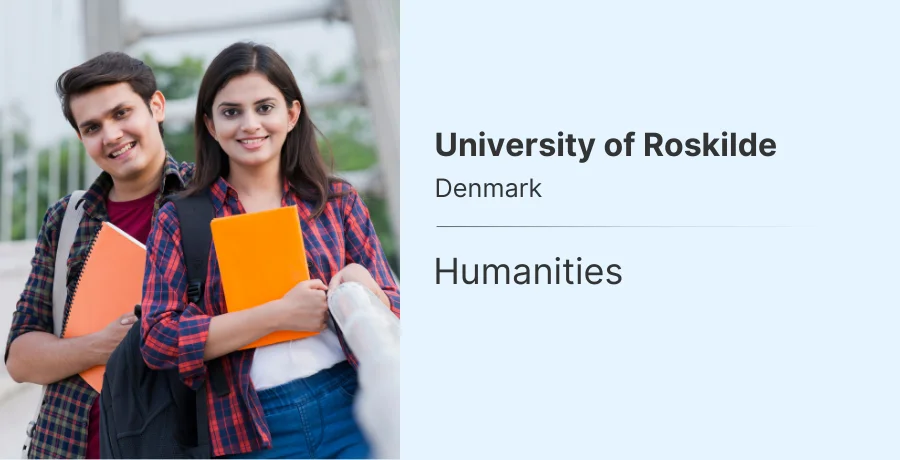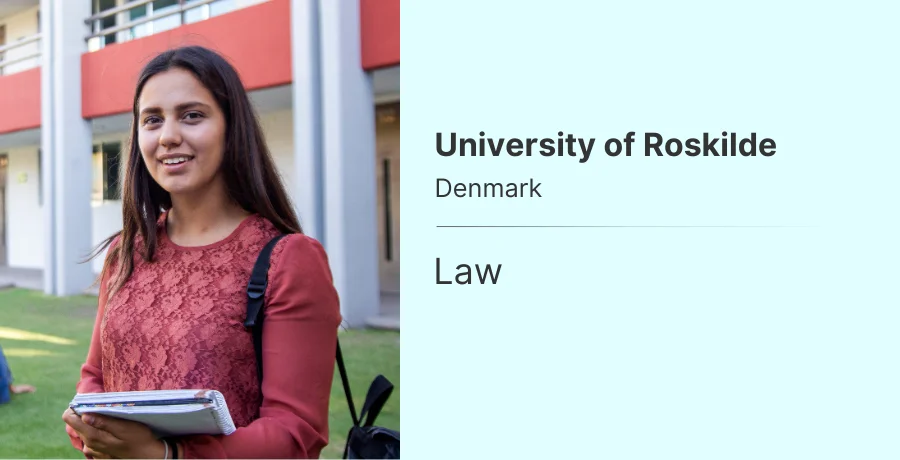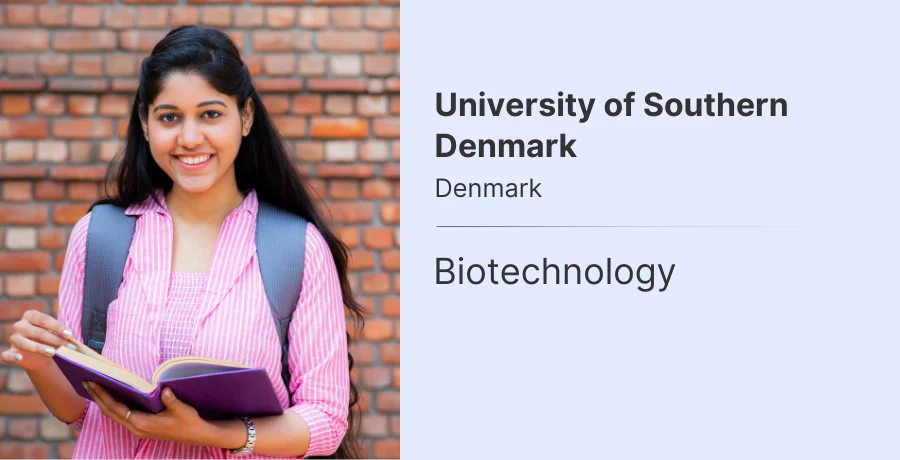Study in Denmark- Highlights
Denmark, with a population of approximately 5.8 million as of 2023, has emerged as a preferred study destination for Indian students due to its high-quality education, affordability, and welcoming environment. As of 2024, the country hosts 25,366 international students, including 1,766 Indian students primarily enrolled in master’s degree programs.
With 31 prestigious higher education institutions, such as the University of Copenhagen, Aarhus University, and Copenhagen Business School, Denmark offers globally recognized degrees and exceptional career prospects. Tuition fees for Indian students at Danish universities range from €6,000 to €16,000 annually, depending on the course and institution.
The cost of living in Denmark for Indian students averages €800–€1,200 per month, covering essentials like accommodation, transportation, and food. Popular programs include engineering, business administration, computer science, and biotechnology, with a strong focus on research and innovation.
Danish universities are known for their cutting-edge technology, sustainability practices, and problem-solving approach, making them ideal for Indian students aiming to study abroad in Denmark. The multicultural environment, combined with scholarships such as the Danish Government Scholarship and Erasmus+, ensures that studying in Denmark is both affordable and enriching. With its emphasis on innovation, sustainability, and high living standards, Denmark continues to be a top choice for Indian students seeking global exposure and career opportunities.
Core Facts About Denmark
Education in Denmark
University / College Stats
Why Study in Denmark?
Denmark's higher education system ranks among the world’s best, focusing on lifelong learning and innovation. In 2024, the country welcomed 25,366 international students, including 1,766 Indian students, highlighting its growing appeal. Here’s why studying in Denmark is an excellent choice:
- World-Class Universities: Danish universities, like the University of Copenhagen (#82 QS 2024) and Aarhus University (#161), offer top-notch education and globally recognized degrees, making them popular among Indian students.
- Free Danish Lessons: The Danish government provides free language classes to help international students adapt and integrate.
- High-Quality Education: Renowned for programs in engineering, business, computer science, and more, Denmark offers innovative teaching and research opportunities, ideal for students pursuing a master’s in Denmark.
- Affordable Living and Tuition: Tuition fees range from €6,000 to €16,000 annually, while the cost of living in Denmark for Indian students is around €800–€1,200 per month, making it a budget-friendly option.
- Free Healthcare: Students benefit from partially subsidized healthcare, saving up to €2,000 annually on medical expenses.
- English-Taught Programs: Over 600 programs are recognised and offered in English, ensuring ease of study for international students.
- Danish Hygge and Friendly Living: Students can experience the unique Danish concept of "hygge" and enjoy a safe, vibrant environment ranked among the world’s happiest countries.
Denmark combines academic excellence, affordability, and cultural richness, making it an ideal destination for Indian students looking to study abroad in Denmark and build a global career.
Universities and Courses to Study in Denmark
Top Universities in Denmark
| S.No | Universities | City | QS Rankings 2024 | Denmark Rankings 2024 |
| 1 | Copenhagen 103 | 1 | 2 | |
| 2 | Aarhus 109 | 2 | 3 | |
| 3 | Lyngby 126 | 3 | 4 | |
| 4 | Copenhagen 201-250 | 4-6 | 5 | |
| 5 | Aalborg 201-250 | 4-6 | 6 | |
| 6 | Odense 251-300 | 7-9 | 7 | |
| 7 | Roskilde 601-800 | 22-28 | 8 | |
| 8 | Aarhus | Not ranked | Not ranked |
Popular Courses in Denmark
Denmark is home to world-class universities offering diverse courses tailored to industry demands, making it an ideal destination for Indian students studying abroad. With a strong focus on high-quality education, cutting-edge research, and excellent career opportunities, studying in Denmark has become increasingly popular.
As of 2024, Denmark hosts over 25,000 international students, including Indian students, who choose specialized courses in fields like engineering, design, biotechnology, and the arts. Indian students are particularly drawn to Denmark for its innovative programs and strong industry connections.
Denmark biotechnology jobs offer immense potential for professionals in research, development, and applied sciences, making it a sought-after field among Indian students. With a robust focus on biotechnology in Denmark, the country provides excellent academic programs, industry collaborations, and state-of-the-art facilities. Furthermore, the biotechnology salary in Denmark is highly competitive, ensuring lucrative career prospects for skilled professionals in the field.
Here's the list of some of the most sought-after courses in Denmark:
- Mechanical Engineering in Denmark
- Industrial Design in Denmark
- Fine Arts in Creative Writing in Denmark
- Biotechnology in Denmark
Study in Denmark Intakes
When planning to study in Denmark, understanding the intake months is crucial. Denmark offers two main intakes for international students, including Indian students looking to pursue higher education in this innovative country.
Recommended Intake – WINTER (July to September)
The winter intake in Denmark is the most popular admission period, especially for Indian students. Universities in Denmark typically open their applications between July and September for programs starting in January or February.
This intake is ideal for students enrolling in high-demand courses and top universities. It offers better chances of securing a place in competitive programs like masters in Denmark and biotechnology in Denmark, as well as greater availability of scholarships and housing.
Summer Intake (January to March)
For the summer intake, Indian students must submit their applications between 1st January and 15th March. While this intake is less popular among students aiming for in-demand courses at prestigious universities, it still provides a good opportunity for those interested in certain specialized fields or less competitive programs. However, summer intake applications are generally fewer, meaning a higher chance of securing admission in some cases.
Cost of Studying in Denmark
The cost of studying in Denmark for Indian students varies depending on the level of education and the program chosen. Tuition fees for undergraduate (UG), postgraduate (PG), and Ph.D. programs differ across universities. On average, Denmark university fees range from €6,000 to €16,000 per year for undergraduate and master’s degrees.
For Indian students, the overall cost of studying in Denmark includes tuition fees, accommodation, food, transport, and other living expenses, which can range between €800 to €1,200 per month. Scholarships and financial aid are available to help offset these costs.
| Program Level | Tuition Fees (per year) | Average Living Costs (per month) | Total Estimated Cost (per year) |
| Undergraduate (UG) | €6,000 - €10,000 | €800 - €1,000 | €13,600 - €22,000 |
| Postgraduate (PG) | €8,000 - €15,000 | €800 - €1,200 | €15,600 - €27,000 |
| PhD | €12,000 - €16,000 | €800 - €1,200 | €17,600 - €28,000 |
Scholarships for Indian Students in Denmark
Denmark offers a range of scholarships to support Indian students in their pursuit of higher education. These scholarships can help reduce the financial burden associated with studying in Denmark, covering tuition fees, living expenses, and other study-related costs. For Indian students planning to study abroad in Denmark, various scholarships, including government-funded and university-specific options, are available to help make their dream a reality. These opportunities provide financial relief for Indian students pursuing programs like masters in Denmark, biotechnology in Denmark, and other high-demand courses at top universities.
| Scholarship Name | Maximum Amount | Eligibility Criteria |
| The Lendo Scholarship | DKK 5,000 | Open to international students with demonstrated academic excellence. |
| K.C. Mahindra Scholarships For Post-Graduate Studies Abroad | ₹ 10 Lakh | Available to Indian students pursuing postgraduate studies abroad. |
| Unimoni Student Stars 2023 | ₹ 3 Lakh | Awarded to Indian students based on academic merit and leadership. |
| JN Tata Endowment Loan Scholarship | ₹ 10 Lakh | For Indian students pursuing postgraduate studies abroad. |
| Robert S. McNamara Fellowships Program | ₹ 37.4 Lakh | Open to graduate students from developing countries, including India, for development-related studies. |
Student Visa in Denmark
For Indian students planning to study in Denmark, obtaining a student visa is a crucial step. Here’s a simplified overview of the process:
| Aspect | Details |
| Cost of Visa Application | Approximately DKK 1,890 (around €250), to be paid during submission. |
| When to Apply? | Apply 6 months before your course begins to allow ample time for processing. |
| Visa Processing Time | Takes about 2 months, though it can vary depending on application volume. |
Documents Required for Visa Application
To apply for a Denmark student visa, Indian students need to provide several documents, including:
- English proficiency proof (IELTS/TOEFL)
- Danish proficiency proof (if applicable)
- Higher Secondary School Certificate + 1 year of university education for undergraduate courses
- Postgraduate degree proof for Master’s applications
- Tuition fee receipt
- Valid passport
- CV and motivation letter
- Bank statement showing sufficient funds
- Visa application form and health insurance letter
- Reference letters (2)
Key Considerations for Indian Students
- Financial proof is essential to show you can cover the cost of living in Denmark for Indian students and other expenses.
- Ensure all documents are valid and complete to avoid delays in processing.
By following these steps, Indian students can successfully obtain a visa to study in Denmark at top universities like the University of Copenhagen.
Required Entrance Exams for Indian Students to Study in Denmark
When applying to study in Denmark, Indian students must often prove their English proficiency through recognized exams. The following exams are commonly accepted by Danish universities:
IELTS for Study in Denmark
The IELTS (International English Language Testing System) exam evaluates listening, reading, writing, and speaking skills. Scores range from 1 to 9, with most programs requiring a score between 6.5 to 7.5 for admission. A good score ensures that students can effectively communicate in an English-speaking academic setting, making it a crucial test for Indian students aiming to study in Denmark.
TOEFL for Denmark Universities
The TOEFL (Test of English as a Foreign Language) exam assesses English proficiency in reading, listening, speaking, and writing. With scores ranging from 0 to 120, Danish universities typically require a score of 80-100 for admission to English-taught programs. This test is essential for Indian students looking to pursue higher education in Denmark.
Cambridge Advanced English (CAE) for Denmark
The Cambridge Advanced English (CAE) exam is another widely accepted test for proving English proficiency at an advanced level. Scoring ranges from A to C, with C being the minimum requirement for admission to most Danish universities. The exam evaluates reading, writing, listening, and speaking skills, and a good score shows that the student is capable of participating in academic discussions and assignments.
These exams are essential for Indian students applying for study abroad in Denmark. Preparing and achieving the required scores can significantly improve your chances of being accepted to top universities like the University of Copenhagen, Aarhus University, and more.
Work Opportunties in Denmark
Denmark offers excellent work opportunities for Indian students after graduation, with various industries providing competitive salaries. Here's an overview of top job roles and their average salaries, making Denmark study abroad a promising pathway for Indian students looking to build a successful career:
| Job Role | Average Salary (DKK) |
|---|---|
| Marketing Manager | 427,000 DKK |
| Sales Manager | 535,000 DKK |
| Architect | 400,000 DKK |
| Software Engineer | 476,000 DKK |
| Product Manager | 720,000 DKK |
| Biotechnologist | 450,000 DKK |
These roles reflect the strong demand in fields like marketing, engineering, architecture, and technology, making Denmark a top destination for international students seeking global career opportunities. The salaries mentioned are highly competitive, allowing Indian students to not only cover their cost of living in Denmark for Indian students but also secure a rewarding future in the thriving Danish job market. With the right qualifications, Indian students can take advantage of the dynamic career growth opportunities available through Denmark universities for international students.
Top 5 FAQs About Studying in Denmark for Indian Students
1. Is Denmark good for Indian students?
Yes, Denmark is good for Indian students due to its globally recognized education system, English-taught programs, and welcoming environment. Students can benefit from excellent career opportunities, scholarships, and free healthcare, making study abroad in Denmark a popular choice for Indian students.
2. What is the cost of studying in Denmark for Indian students?
The Denmark study cost for Indian students ranges from DKK 45,000 to DKK 120,000 per year for bachelor's and master's programs, depending on the course and university. Additionally, the cost of living in Denmark for Indian students is approximately DKK 6,000 to 9,000 per month, covering accommodation, food, and other expenses.
3. What are the best universities in Denmark for Indian students?
Some of the top Denmark universities for international students include the University of Copenhagen, Aarhus University, and Copenhagen Business School. These institutions offer excellent education, cutting-edge research, and career-focused programs that attract students from all over the world.
4. Do Indian students need English proficiency tests to study in Denmark?
Yes, most Danish universities require English proficiency test scores such as IELTS (minimum score: 6.5) or TOEFL (minimum score: 80) for admission to study in Denmark for Indian students. These tests ensure students can thrive in English-taught courses.
5. Are there scholarships for Indian students in Denmark?
Yes, there are several scholarships for Indian students, such as the Lendo Scholarship, K.C. Mahindra Scholarships, and JN Tata Endowment Loan Scholarship, which help reduce the Denmark university fees and make education more affordable for Indian students.



-logo.png)





